Toward a More Colorful Lineup
Lauren Zane (left) and Juliet “Satya” Sullivan.
Graduate students and surfers Juliet “Satya” Sullivan and Lauren Zane want to see more women of color on the waves.
Lauren Zane watched the Matunuck, R.I., surf online from her home in California. It was pumping.
She was surfing within days of arriving in Rhode Island in the fall of 2021. That first day out was great—a couple of guys were open to sharing their spot. It doesn’t always go so smoothly.
Surfers share an understanding, a code: Respect each other and respect the ocean. But respect hasn’t always extended to surfers of color. It’s well documented that surfers of color have been targets of harassment and vandalism, friend and fellow surfer Juliet “Satya” Sullivan says. And newcomers to a lineup can face “surf localism,” a territorialism around surfing spots, adds Zane.
“Here in Rhode Island, you need someone to open the gate for you,” Zane says. “Localism is real. Some guys think, ‘They’re gonna blow up my spot.’”
Lauren Zane
Zane is a Ph.D. student in the biological and environmental science program. She and Sullivan, a cinematographer pursuing her master’s in marine affairs, are the co-founders of Colorful Lineup, an organization serving women-of-color surfers through online discussion, free surfing clinics, and gear redistribution. The organization’s name reflects their vision of a future where, instead of being the only women of color in a lineup of surfers, they’ll attract enough women to field a lineup of their own.
“We wondered why we see certain people surfing, and why we don’t see others. We talked about experiences we’ve had in the water, and they were the same.”
–Lauren Zane
The idea for Colorful Lineup grew out of a course Sullivan and Zane were in together—MAF 500: Race, Gender, Colonialism, and Science—taught by associate professor of marine affairs Amelia Moore. They were introduced to ideas about how imperialism and colonization influenced the development of science—and how that’s resulted in racial and socioeconomic achievement gaps in marine science, whose practitioners, historically, have been predominantly white.
The course got them thinking about the parallels between science and surfing. “We wondered why we see certain people surfing, and why we don’t see others,” Zane says. “We talked about experiences we’ve had in the water, and they were the same.”
“We’ve witnessed actual aggression,” Sullivan adds.
The pair started an Instagram account to celebrate women of color who surf and to talk about surfing in the context of income inequality, localism, coastal access, and structural racism. No one was talking about surfing in that context, Sullivan says. “We can show brown bodies in the water all we want but we want to offer a way for people to act.”
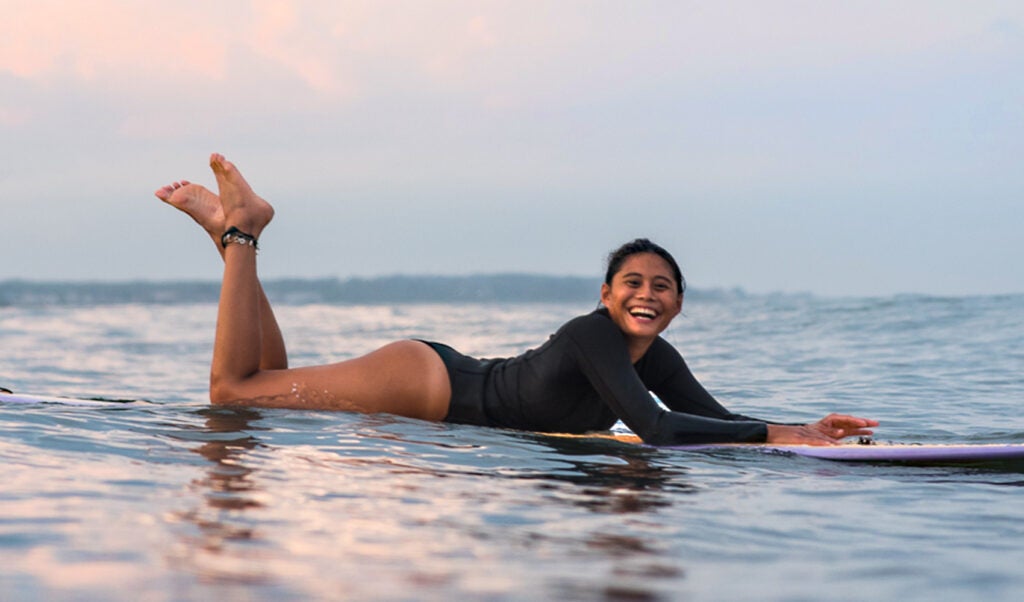
Juliet “Satya” Sullivan 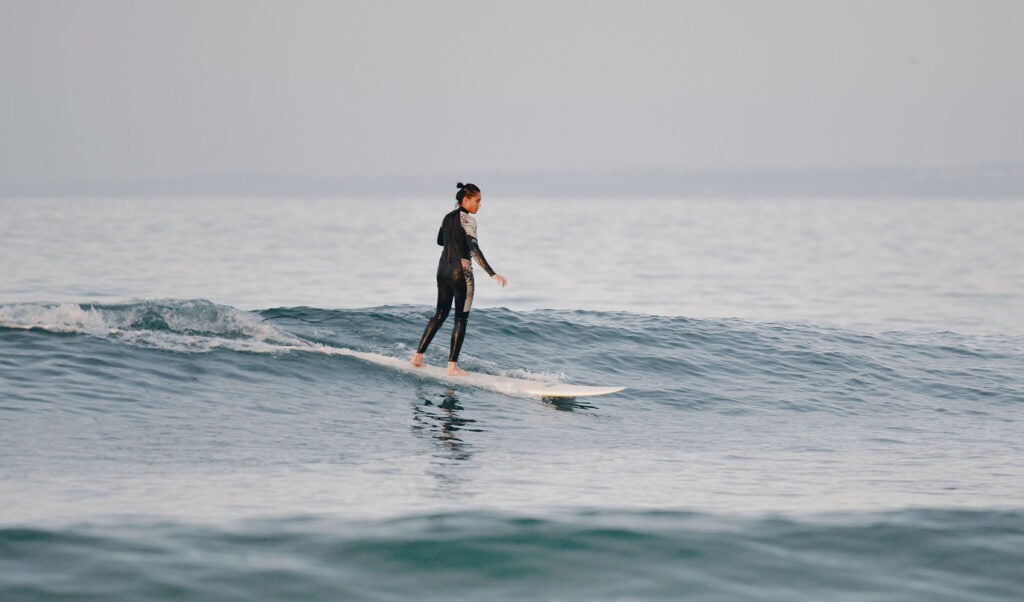
Satya Sullivan 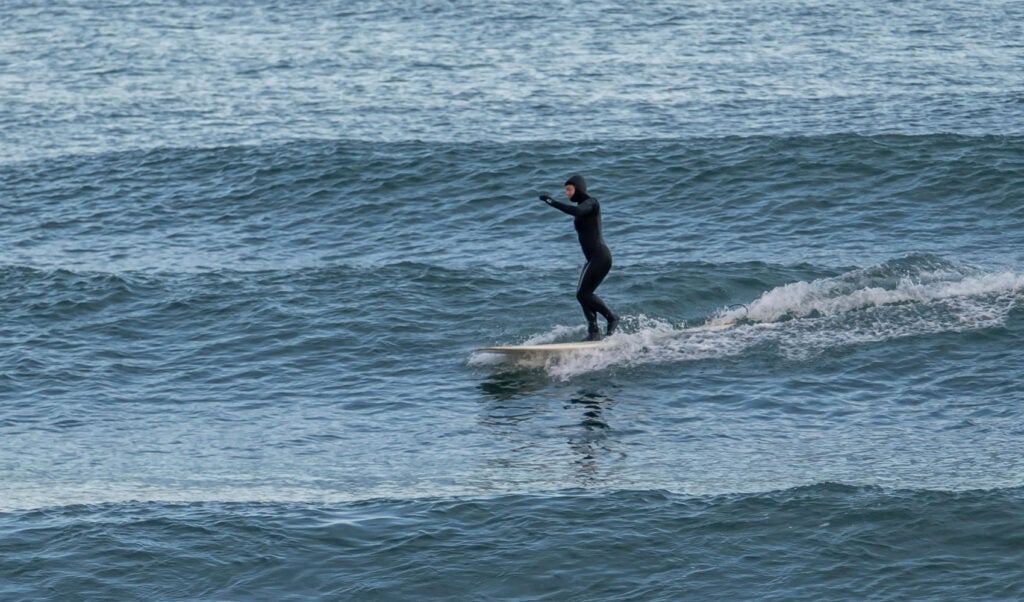
Lauren Zane 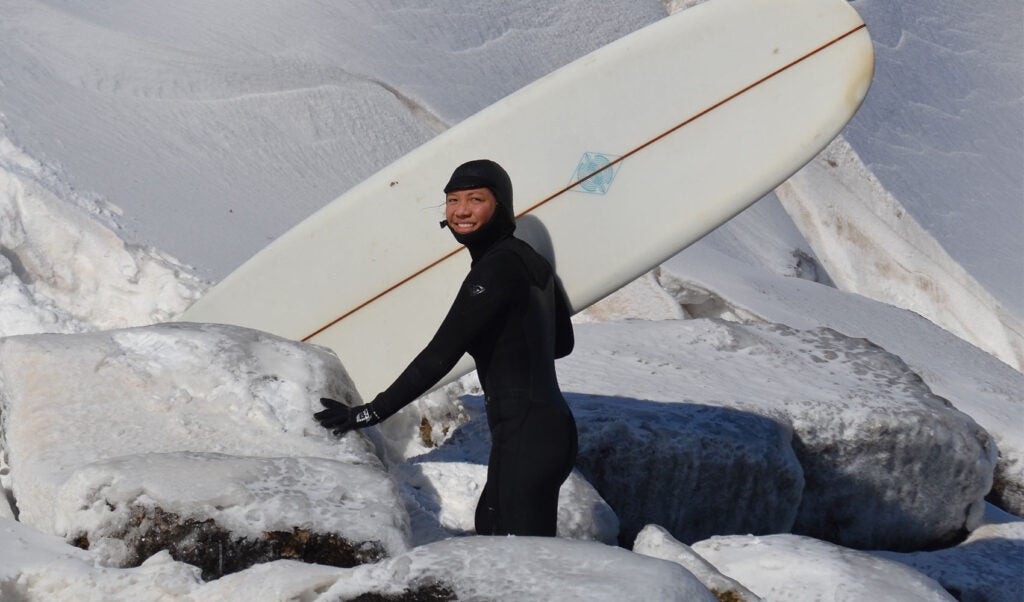
Lauren Zane 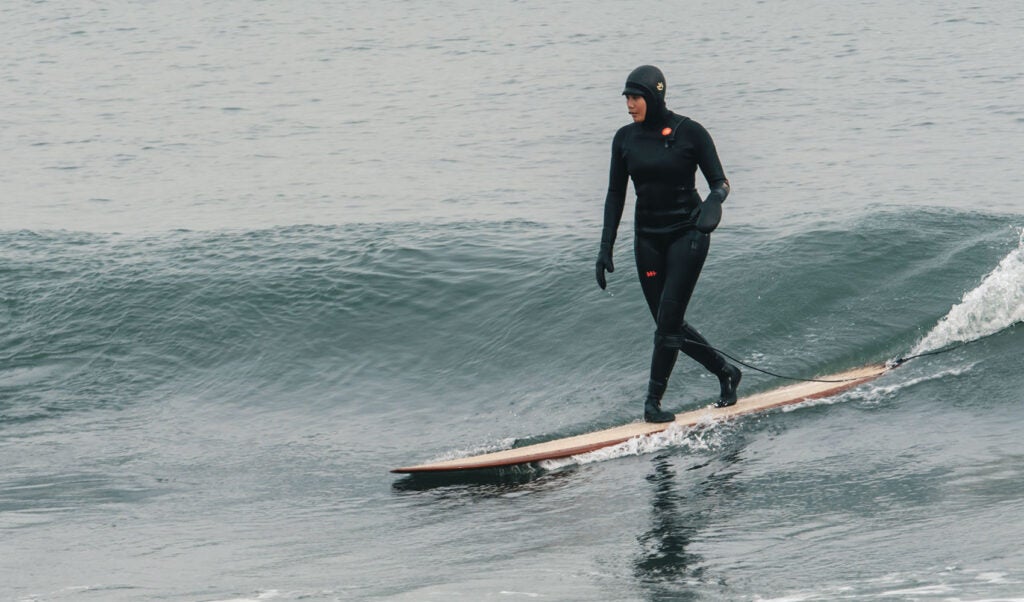
Satya Sullivan
The first and primary action is to get more women of color surfing, the pair says.
Thus far, they’ve started an Instagram series—#WOCMakingWaves—featuring fellow surfers such as Jessica Malia Vandenberg, Ph.D. ’20, a postdoctoral research scholar at URI who is investigating how government solutions to plastic pollution perpetuate inequities and create new ones. And last spring, Colorful Lineup brought David Mesfin’s multiple award-winning 2023 documentary Wade in the Water: A Journey into Black Surfing and Aquatic Culture, to URI’s Narragansett Bay Campus. The film chronicles the 1,000-year-old tradition of Black surfing—and the racism surfers of color have endured.
Sullivan and Zane are optimistic and clear-eyed about the future of science and of surfing.
“It takes a long time to change a whole system,” Zane says.
—Marybeth Reilly-McGreen
Photos: Top, Nora Lewis. All others, courtesy Lauren Zane and Satya Sullivan.

Great stuff, Zane and Sullivan.
Yeah, our color should not determine our life and how we live it.
Rooting for you both 💪
Two inspiring pioneers! A credit to our community. Keep on keepin’ on.
Well said,Phil!
Wonderful! Keep up the great work!